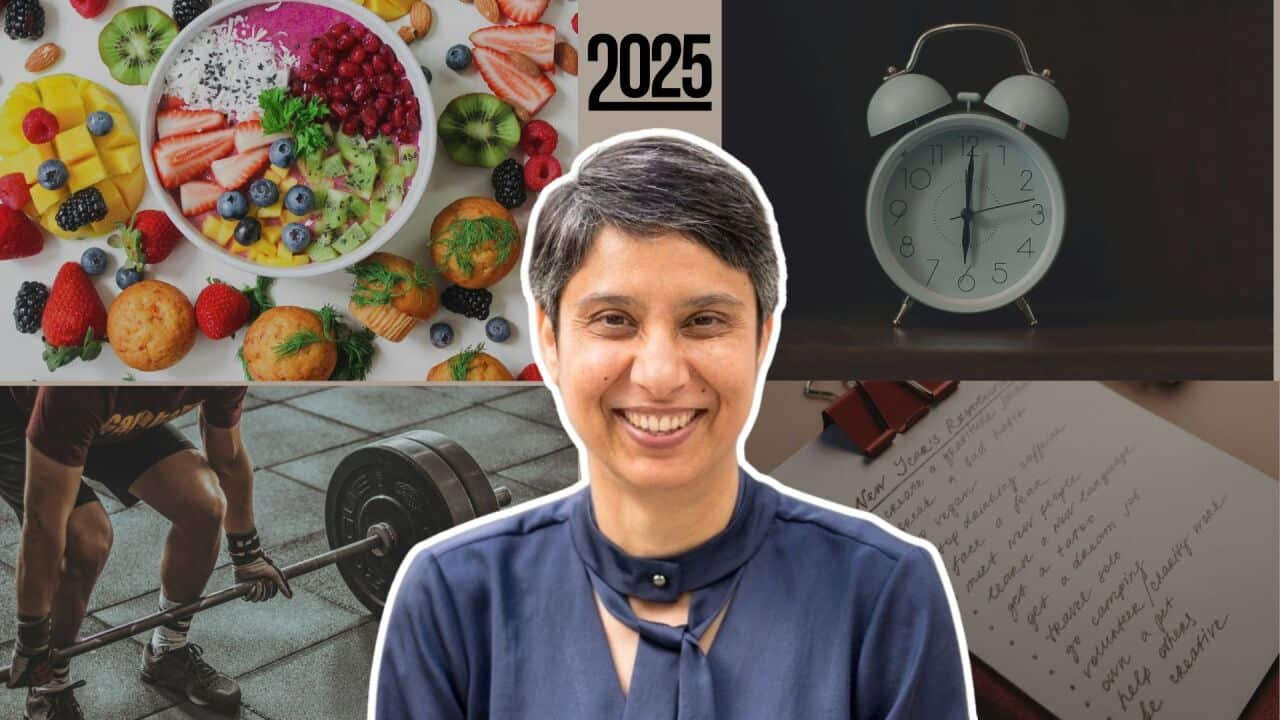Shivani, a working mother-of-two, said companies should provide "necessary support to ensure all employees have equal access to the opportunities".
Melbourne-based Shivani used to work from home during the pandemic lockdowns.
However, as the situation improved, she said she was asked to implement a hybrid mode of working 60 per cent at home and 40 per cent in the office.
Now, she said her employer wanted her to work 60 per cent in the office.

"Between my husband and I, we do not have even a single day off together, to ensure that at least one of us is available for picking up and dropping off kids."
Working more from the office would mean less family time and longer, stressful days, she added.

Credit: SBS Punjabi
Shivani’s situation mirrors a rising trend among Australian employers of returning to pre-COVID-19 working styles and asking employees to work more from the office.
revealed that chief executive officers (CEOs) were advocating for employees to return to offices.
CEOs are hardening their stances on returning to pre-pandemic ways of working, with 83 per cent of CEOs expecting a full-time return to the office with the next three years, the report states.
This is a notable increase from last year when the number of CEOs preferring work from the office was at 64 per cent.
The NSW government, the biggest employer in the country with over 400,000 staff, has also asked .
As companies are considering going back to a work-from-office set-up, many migrant women claim lack of family support and social responsibilities are making the move harder for them.
'Gender roles a hindrance'
For Sharan*, who was a PhD researcher in India and held a prestigious junior research fellowship, finding a job in Australia was difficult.
"When I first arrived here, I was confused about how can I get the most suitable job. I wrote letters to the Department of Education but I could not understand what the requirements were. I lost confidence and started to work odd jobs," she told SBS Punjabi.
"My husband did not want me to travel much for work either. So I started working at a sandwich shop near my place.
"After two years, I started to study nursing as it was something I liked but as soon as I conceived our first child, my husband wanted me to stay at home. Since then, the primary responsibility of my children (was on) me.
In our culture, it is assumed that a woman will take on the housing and caring roles. My husband would not even pick up our crying children to soothe them.Sharan*
"Throughout the infancy of my children, I would sleep in a separate room with them while my husband slept in a different room.
"Now, that both my kids are over two years (old), I wish to rejoin workforce and I hope I could get my chance this time, however, it can only be possible with support from within the family."
As she is raising both a boy and a girl, Sharan said she did not want her children to learn traditional gendered roles.
My parents had invested equally in my studies and that of my brother's but now I am unable to fulfil my responsibilities as a daughter.Sharan*
"I will teach (both) my son and daughter household chores. I will teach them to respect the work done inside the house as much as the work done at workforce so they can break this pattern," she said.

Credit: Pexels
She said she switched to a work-from-home career as she wanted to also take care of her children.
"It is too much of a pressure to handle for a single person to work five days, do all the household chores, and look after children. For me working from home was the only suitable option, hence, I chose to change my field of work," she said.
We grew up in a society where we were taught that certain tasks are to be performed by women while certain (others) are to be done by men.Manpreet Kaur
"While the times (are) changing now, it was not the same earlier," she said adding that she misses "supporting her husband as much as her Australian counterparts".
Higher toll of motherhood on migrant mums
While Australia-born women too take up unpaid caring roles, especially as mothers, women from culturally and linguistically diverse backgrounds face wider division.

Data shows that among migrants, those from South Asian countries fare worse in terms of labour participation.
Census shows that migrant women are more likely to be performing unpaid childcare than Australian women.
According to the , 46 per cent of women in the skilled migration stream and 49 per cent in the family stream perform unpaid childcare work as compared to 34 per cent of Australian women.
Among migrants, those from South Asian countries fare worse.
Migrant women born in England (69 per cent) and Canada (76 per cent) have high participation in the Australian labour market, whereas migrant women born in South Asian, Asian and Middle Eastern nations have much lower participation (ranging from 60 per cent to 33 per cent), as per .
'CALD women most vulnerable'
Speaking with SBS Punjabi, Nicole Dwyer, Chief Executive Officer at Workskil Australia, a not-for-profit organisation which helps people find jobs, said women found it more difficult to find suitable work as compared to men, however, women from culturally and linguistically diverse backgrounds were more vulnerable.
"Some of the issues contributing to this include women taking up caring roles for children and other people in families," she said.
"But there are a whole lot of other barriers. For women from culturally and linguistically diverse backgrounds and refugee women, there are also issues around their skills, qualifications, and experience being recognised."
There had been a lot of work around recognising university education but not a lot of work around trade-based education and skills. For example, if a person had a diploma in childcare form their home country, it was not recognised in Australia, she added.
LISTEN TO

Sexually harassed and afraid to tell: migrant women over-represented but under-reported
SBS News
14/11/202408:15
A lot migrant women did not have a driver's licence in Australia, there was a lack of family support as compared to other people in the country, and a lack of English skills and digital literacy, she said.
"It will have some impact if they demand full back in (the) office, especially for women. There is still need for some flexibility with a couple of days to just take significant pressures off families."
*name changed on request.
For news, information, and interviews in Punjabi from Australia and the homeland, tune into SBS Punjabi live, Monday to Friday at 4pm, on, digital radio (channel 305 on your television) or via the . You can also stream directly from our .

















